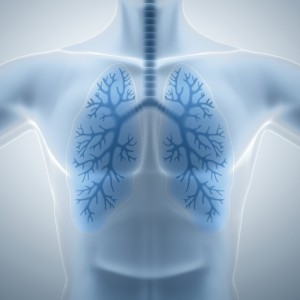|
SOUTH SAN FRANCISCO, Calif., Apr 09, 2015 (BUSINESS WIRE) -- Exelixis, Inc.
EXEL, +5.44%
today announced that the U.S. Food & Drug Administration (FDA) has granted Fast Track designation to cabozantinib for treatment of patients with advanced renal cell carcinoma (RCC) who have received one prior therapy. Cabozantinib is the company’s lead compound and inhibits the activity of multiple tyrosine kinases including MET, VEGFRs and RET. The FDA created the Fast Track process to facilitate the development and expedite the review of drugs to treat serious diseases and address unmet medical needs. Fast Track designation confers important benefits, including the potential eligibility for Priority Review of a New Drug Application, if relevant criteria are met.1
Cabozantinib is the subject of METEOR, an ongoing phase 3 pivotal trial in patients with metastatic RCC who have experienced disease progression following treatment with at least one VEGFR tyrosine kinase inhibitor. Patients are randomized 1:1 to receive 60 mg of cabozantinib daily or 10 mg of everolimus daily. The primary endpoint of METEOR is progression-free survival, and secondary endpoints include overall survival and objective response rate. Exelixis expects to release top-line results from the trial in the second quarter of 2015. In addition to the metastatic RCC development program, Exelixis is also evaluating cabozantinib in CELESTIAL, a phase 3 pivotal trial in second-line hepatocellular carcinoma (HCC).
About Metastatic Renal Cell Carcinoma
The American Cancer Society’s 2015 statistics cite kidney cancer as among the top ten most commonly diagnosed forms of cancer among both men and women in the United States.2 Clear cell renal cell carcinoma is the most common type of kidney cancer in adults.3 If detected in its early stages, the five-year survival rate for RCC is high; however, the five-year survival rate for patients with advanced or late-stage metastatic RCC is under 10 percent, with no identified cure for the disease.4
Treatments for metastatic RCC had historically been limited to immunotherapy (e.g., interleukin-2 and interferon) until the introduction of targeted therapies into the RCC setting a decade ago. In the second-line setting, which encompasses approximately 11,000 drug-eligible patients in the U.S. and 37,000 globally, four new therapies have been approved in the past five years.5 Despite the availability of several therapeutic options, however, currently approved agents have shown little differentiation in terms of efficacy and have demonstrated only modest PFS benefit in patients refractory to sunitinib, a commonly-used first-line therapy.
About Cabozantinib
Cabozantinib inhibits the activity of tyrosine kinases including MET, VEGFRs and RET. These receptor tyrosine kinases are involved in both normal cellular function and in pathologic processes such as oncogenesis, metastasis, tumor angiogenesis, and maintenance of the tumor microenvironment.
COMETRIQ® (cabozantinib) is currently approved by the U.S. Food and Drug Administration for the treatment of progressive, metastatic medullary thyroid cancer (MTC).
The European Commission granted COMETRIQ conditional approval for the treatment of adult patients with progressive, unresectable locally advanced or metastatic MTC. Similar to another drug approved in this setting, the approved indication states that for patients in whom Rearranged during Transfection (RET) mutation status is not known or is negative, a possible lower benefit should be taken into account before individual treatment decisions.
Important Safety Information, including Boxed WARNINGS
WARNING: PERFORATIONS AND FISTULAS, and HEMORRHAGE
- Serious and sometimes fatal gastrointestinal perforations and fistulas occur in COMETRIQ-treated patients.
- Severe and sometimes fatal hemorrhage occurs in COMETRIQ-treated patients.
- COMETRIQ treatment results in an increase in thrombotic events, such as heart attacks.
- Wound complications have been reported with COMETRIQ.
- COMETRIQ treatment results in an increase in hypertension.
- Osteonecrosis of the jaw has been observed in COMETRIQ-treated patients.
- Palmar-Plantar Erythrodysesthesia Syndrome (PPES) occurs in patients treated with COMETRIQ.
- The kidneys can be adversely affected by COMETRIQ. Proteinuria and nephrotic syndrome have been reported in patients receiving COMETRIQ.
- Reversible Posterior Leukoencephalopathy Syndrome has been observed with COMETRIQ.
- Avoid administration of COMETRIQ with agents that are strong CYP3A4 inducers or inhibitors.
- COMETRIQ is not recommended for use in patients with moderate or severe hepatic impairment.
- COMETRIQ can cause fetal harm when administered to a pregnant woman.
Adverse Reactions – The most commonly reported adverse drug reactions (greater-than or equal to 25%) are diarrhea, stomatitis, palmar-plantar erythrodysesthesia syndrome (PPES), decreased weight, decreased appetite, nausea, fatigue, oral pain, hair color changes, dysgeusia, hypertension, abdominal pain, and constipation. The most common laboratory abnormalities (greater-than or equal to 25%) are increased AST, increased ALT, lymphopenia, increased alkaline phosphatase, hypocalcemia, neutropenia, thrombocytopenia, hypophosphatemia, and hyperbilirubinemia.
Please see full U.S. prescribing information, including Boxed WARNINGS, at www.COMETRIQ.com/downloads/Cometriq_Full_Prescribing_Information.pdf. Please refer to the full European Summary of Product Characteristics for full European Union prescribing information, including contraindication, special warnings and precautions for use at www.sobi.com once posted.
About Exelixis
Exelixis, Inc. is a biopharmaceutical company committed to developing small molecule therapies for the treatment of cancer. Exelixis is focusing its development and commercialization efforts primarily on COMETRIQ® (cabozantinib), its wholly-owned inhibitor of multiple receptor tyrosine kinases. Another Exelixis-discovered compound, cobimetinib, a highly selective inhibitor of MEK, is being evaluated by Roche and Genentech (a member of the Roche Group) in a broad development program under a collaboration with Exelixis. For more information, please visit the company's web site at www.exelixis.com.
Forward-Looking Statements
This press release contains forward-looking statements, including, without limitation, statements related to: potential eligibility for Priority Review of a New Drug Application for cabozantinib for treatment of patients with metastatic renal cell carcinoma (RCC) who have received one prior therapy. Words such as “potential,” “eligibility,” “expects,” and similar expressions are intended to identify forward-looking statements. These forward-looking statements are based upon Exelixis’ current plans, assumptions, beliefs, expectations, estimates and projections. Forward-looking statements involve risks and uncertainties. Exelixis’ actual results and the timing of events could differ materially from those anticipated in the forward-looking statements as a result of these risks and uncertainties, which include, without limitation: risks related to the uncertainties of the regulatory review and approval processes and Exelixis’ compliance with applicable legal and regulatory requirements; risks related to the potential failure of cabozantinib to demonstrate safety and efficacy in clinical testing; Exelixis’ ability to conduct clinical trials of cabozantinib sufficient to achieve a positive completion; the availability of data at the expected times; the uncertain timing and level of expenses associated with the development of cabozantinib; the clinical, therapeutic and commercial value of cabozantinib; market competition; changes in economic and business conditions; and other factors discussed under the caption “Risk Factors” in Exelixis’ annual report on Form 10-K filed with the Securities and Exchange Commission (SEC) on March 2, 2015 and in Exelixis' other filings with the SEC. The forward-looking statements made in this press release speak only as of the date of this press release. Exelixis expressly disclaims any duty, obligation or undertaking to release publicly any updates or revisions to any forward-looking statements contained herein to reflect any change in Exelixis’ expectations with regard thereto or any change in events, conditions or circumstances on which any such statements are based.
Exelixis, the Exelixis logo, and COMETRIQ are registered U.S. trademarks.
1http://www.fda.gov/ForPatients/Approvals/Fast/ucm405399.htm
2Cancer Facts & Figures 2015.American Cancer Society. Available at http://www.cancer.org/acs/groups/content/@editorial/documents/document/acspc-044552.pdf
3Jonasch et al., BMJ (2014) vol. 349, g4797.
4http://www.cancer.org/cancer/kidneycancer/detailedguide/kidney-cancer-adult-survival-rates
5ACS Cancer Facts and Figures 2015; Heng et al., Ann Oncol (2012) vol. 23 no. 6; internal data on file; Motzer et al., N Engl J Med (2007) vol. 356 no. 2; NCIN (UK) report, April 2014, Available at http://www.ncin.org.uk/view?rid=2676.
SOURCE: Exelixis, Inc.
Exelixis, Inc.
Susan Hubbard, 650-837-8194
Investor Relations & Corporate Communications
This e-mail address is being protected from spambots. You need JavaScript enabled to view it
Copyright Business Wire 2015
|
 Log in to explore the world's most comprehensive database of dialysis centres for free!
Log in to explore the world's most comprehensive database of dialysis centres for free!  Professional dialysis recruitment
Professional dialysis recruitment © AFP/File Piotr HawalejBorn 15 weeks early, Kamil nearly died from organ failure a few days later and conventional methods used to keep preterm babies alive proved ineffective
© AFP/File Piotr HawalejBorn 15 weeks early, Kamil nearly died from organ failure a few days later and conventional methods used to keep preterm babies alive proved ineffective



